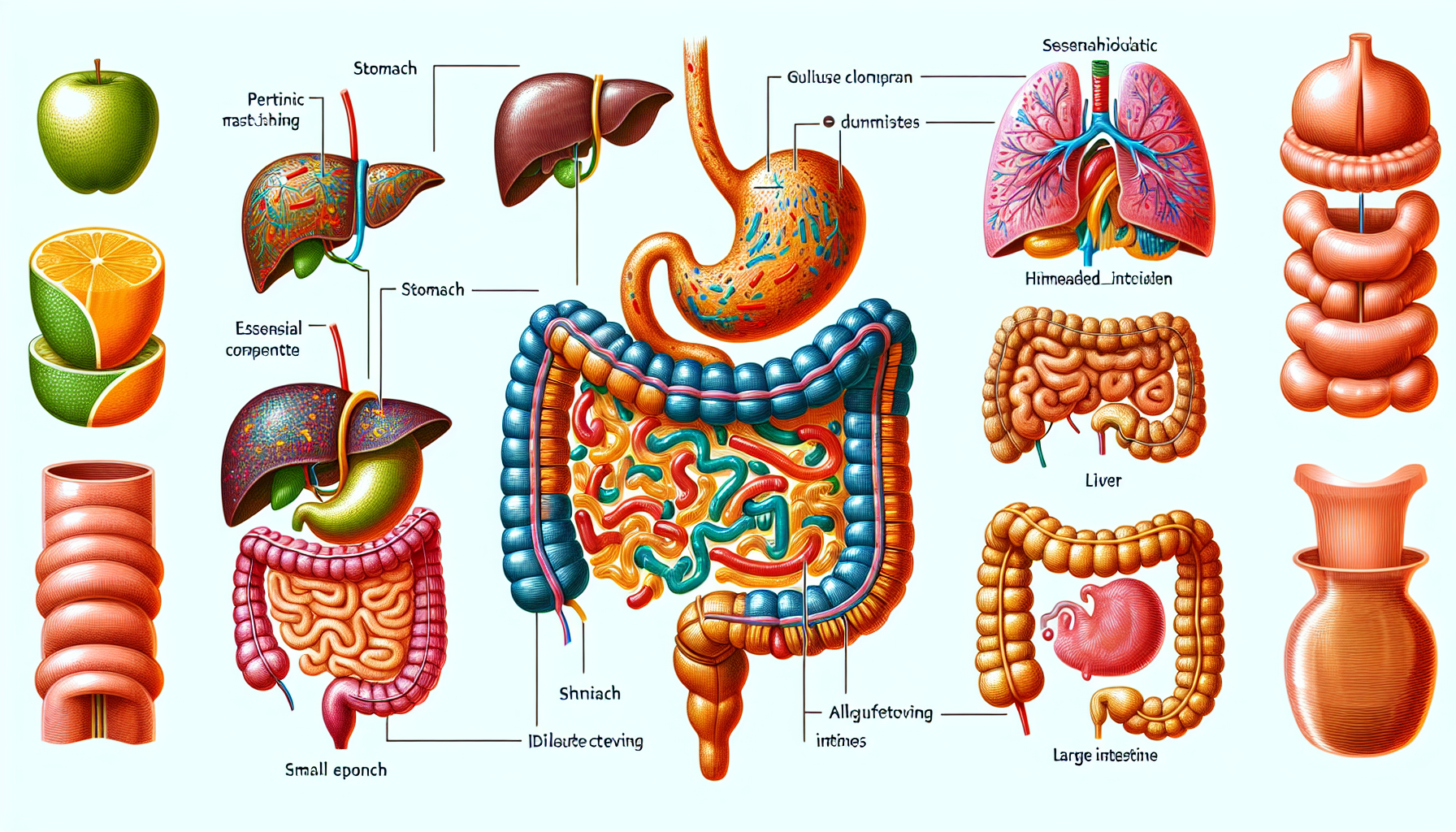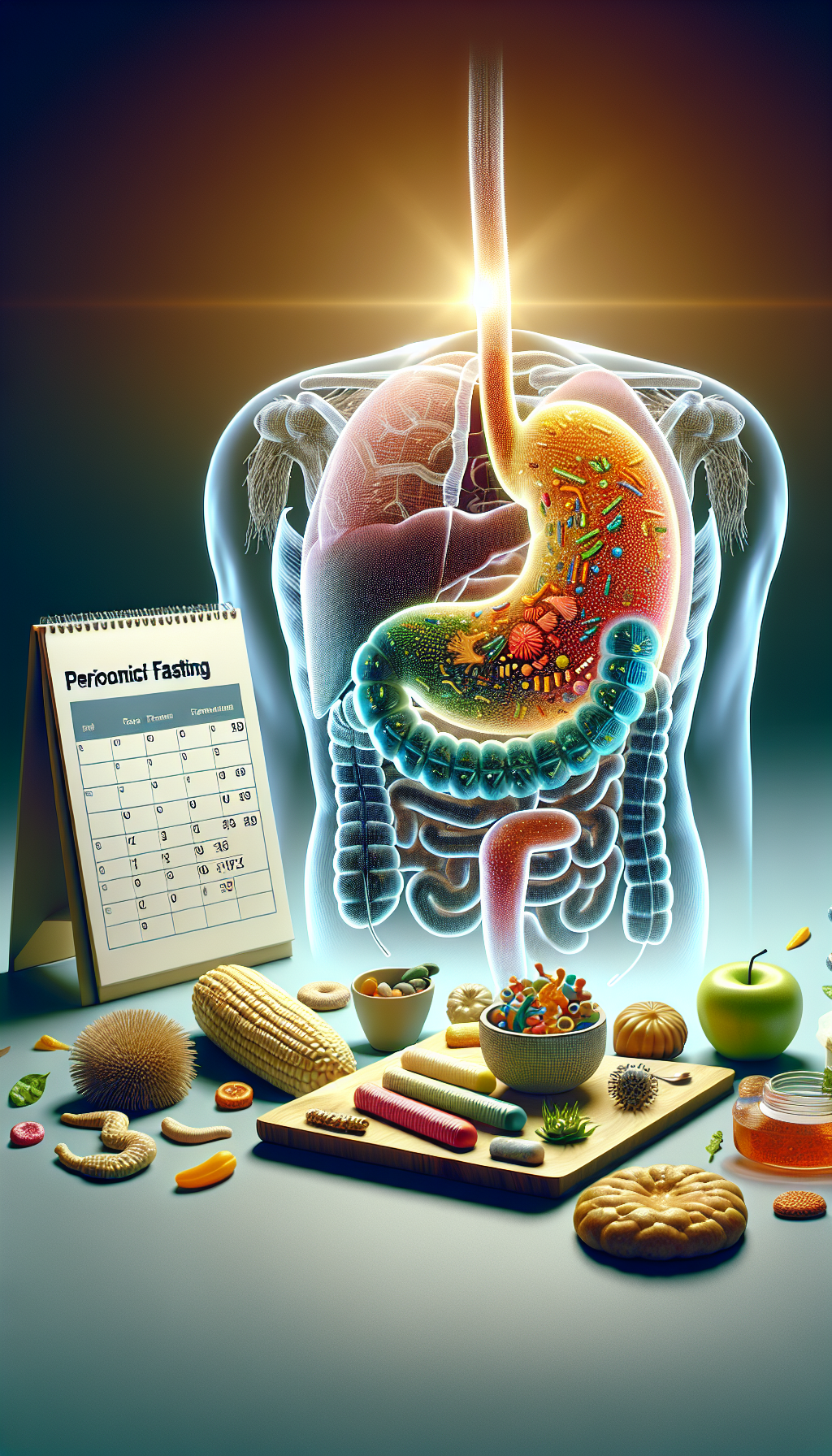Periodic fasting is a dietary regimen that cycles between periods of eating and abstaining from food or significantly reducing calorie intake. This practice, which has roots in various cultural and religious traditions, is now gaining popularity for its potential health benefits, particularly for gut rejuvenation. Here, we explore how periodic fasting can aid in digestive health and the mechanisms behind its effects.
Understanding Periodic Fasting and Gut Health
The human gut is more than just a digestion center; it’s a complex ecosystem where trillions of microbes play a crucial role in overall health, including nutrient absorption, immune function, and even mood regulation. Maintaining a healthy gut is therefore vital for general wellbeing. Digestive Health is intrinsically linked to how we manage our diet and lifestyle, and periodic fasting has emerged as a promising approach to support and enhance gut health.
The Science Behind Fasting and Digestive Rejuvenation
Periodic fasting induces a state called "gut rest," during which the digestive system gets a break from its routine work of breaking down food. This pause can lead to several beneficial outcomes:
- Enhanced Autophagy: Autophagy is the body’s way of cleaning out damaged cells to regenerate newer, healthier ones. Fasting activates this process, which is crucial for removing toxins and repairing gut lining cells.
- Balanced Gut Microbiota: Fasting can modify the gut microbiota composition, boosting the growth of beneficial bacteria and suppressing harmful ones, leading to improved gut balance and health.
- Reduced Inflammation: Fasting has been shown to reduce markers of inflammation, which is beneficial for conditions like inflammatory bowel diseases (IBD).
Rejuvenating the Gut Through Fasting
Periodic fasting can lead to a rejuvenated gut by allowing the digestive system to repair and regenerate. It can also:
- Support the repair of the intestinal lining
- Improve bowel movement regularity
- Enhance the immune system’s effectiveness within the gut
Practical Tips for Implementing Periodic Fasting Safely
Before embarking on a fasting routine, it’s essential to understand the right way to approach it to ensure it is safe and beneficial:
- Consultation with a Healthcare Provider: It’s paramount to consult with a healthcare professional before starting, especially if you have underlying health conditions or are taking medication.
- Gradual Introduction: Start with shorter fasting periods and gradually increase as your body adjusts.
- Hydration: Even during fasting periods, staying hydrated is essential. Water, herbal teas, and bone broths are good options to maintain fluid intake.
- Balanced Eating During Non-Fasting Periods: Ensure that during eating periods, your diet is rich in nutrients, fibers, and proteins to support your body’s needs.
The Synergy Between Fasting, Diet, and Gut Health
Combining periodic fasting with a balanced diet can amplify gut health benefits. Incorporating foods rich in probiotics and prebiotics can further support the microbiome. Resources like Gut Microbiome and Diet provide in-depth insights into this relationship.
Integrating Fasting with a Healthy Lifestyle
Fasting should be one component of a holistic approach to health. Regular exercise, stress management, and adequate sleep all contribute to gut health and can enhance the effects of fasting. For more information on creating a balanced approach to wellbeing, resources such as Lifestyle Factors and Gut Health are invaluable.
Understanding the Risks and How to Mitigate Them
Like any dietary change, periodic fasting comes with potential risks, such as nutrient deficiencies, disruptions to blood sugar levels, or exacerbation of eating disorders. Careful planning and professional guidance can help mitigate these risks. For those interested in the science of fasting and its potential risks, Fasting: Benefits and Risks offers comprehensive analysis.
Linking Periodic Fasting to Other Health Domains
The benefits of fasting extend beyond gut health. It has been linked to improved Cardiovascular Health and Brain Health. Additionally, fasting has implications for metabolic regulation, potentially impacting weight management and diabetes risk.
Real-Life Success Stories and Academic Research
There are numerous anecdotal reports of improved health and vitality with fasting, but it’s also backed by research. Studies like those found in the American Journal of Clinical Nutrition shed light on its efficacy and safety.
Conclusion
Periodic fasting can be a potent tool for gut rejuvenation, offering a plethora of benefits from enhanced microbiota balance to reduced inflammation. When paired with a nutritious diet and a healthy lifestyle, it can significantly contribute to digestive health and overall wellness. As with any dietary approach, it’s crucial to tailor fasting regimens to individual needs and to seek professional advice to ensure safety and effectiveness.
For further reading on related topics, consider exploring how Probiotics and Prebiotics: Nourishing a Healthy Gut Microbiome, The Impact of Sleep Patterns on Digestive Health, and Strategies for Improving Gallbladder Health contribute to the complex puzzle of gut health and overall well-being.



